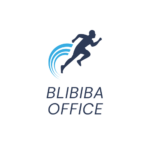Sports Nutrition a Handbook for Professionals
- Critical Role of Nutrition: Nutrition significantly impacts athletic performance, endurance, and recovery, essential for athletes striving for peak performance.
- Macronutrients and Hydration: Understanding the roles of carbohydrates, proteins, and fats in energy production, alongside hydration’s impact on performance, is crucial for effective sports nutrition.
- Individualized Nutrition Plans: Tailoring nutrition strategies to meet the unique needs of each athlete based on their sport, age, gender, and training intensity enhances overall performance.

- Nutrient Timing Importance: Proper timing of nutrient intake before and after exercise aids in energy management and recovery, optimizing athletic outcomes.
- Evidence-Based Recommendations: The handbook emphasizes scientifically-supported dietary guidelines and case studies, ensuring that nutrition interventions are grounded in the latest research.
- Practical Application for Professionals: Coaches and sports nutritionists can apply this knowledge to develop effective dietary plans that support athletes’ health and performance levels.
In the competitive world of sports, athletes strive for peak performance, and nutrition plays a crucial role in achieving that goal. “”Sports Nutrition: A Handbook for Professionals”” serves as an essential resource for coaches, trainers, and nutritionists looking to optimize their athletes’ dietary strategies. This comprehensive guide delves into the science of sports nutrition, providing evidence-based recommendations tailored to various sports and individual needs.
Understanding the impact of nutrition on athletic performance can make all the difference. With insights into macronutrients, hydration, and recovery strategies, this handbook equips professionals with the knowledge to enhance their athletes’ training and competition outcomes. Whether it’s fueling for endurance or building strength, mastering sports nutrition is key to unlocking an athlete’s full potential.
Overview of Sports Nutrition
Sports nutrition involves dietary strategies that aim to enhance athletic performance and recovery. Understanding the nuances of sports nutrition plays a crucial role in maximizing an athlete’s potential.
Importance of Nutrition in Sports
Nutrition significantly impacts athletic performance, endurance, and recovery. Proper dietary intake supports energy levels, muscle repair, and overall health. A well-balanced diet ensures athletes meet their caloric and nutrient needs, which vary according to training intensity and competition schedules. Nutrition can influence training adaptations, competitive readiness, and injury prevention, highlighting its essential role in any athlete’s regimen.
- Macronutrients
Macronutrients consist of carbohydrates, proteins, and fats, each serving specific functions. Carbohydrates provide energy during high-intensity workouts. Proteins support muscle repair and growth. Fats supply a concentrated energy source for prolonged exercise.
- Hydration
Hydration affects performance and recovery. Adequate fluid intake prevents dehydration, which can impair physical and cognitive function. Electrolytes, such as sodium and potassium, play a critical role in maintaining fluid balance and muscle function.
- Timing of Nutrient Intake
Timing refers to when an athlete consumes specific nutrients to enhance performance. Pre-exercise meals boost energy levels. Post-exercise nutrition replenishes glycogen stores and aids muscle recovery. Consistent timing of nutrient intake aids in optimizing training outcomes.
- Individual Needs
Individualized nutrition plans account for the unique requirements of athletes based on sport, age, gender, and training intensity. Customized plans enhance performance and support health by addressing specific energy and nutrient needs.
- Supplements and Ergogenic Aids
Supplements may support dietary gaps, although whole foods should form the foundation of an athlete’s nutrition. Certain ergogenic aids, such as creatine or branched-chain amino acids, can provide performance advantages when used correctly.
These key concepts form the backbone of effective sports nutrition, equipping professionals with the tools to guide athletes toward peak performance and efficient recovery.
Key Features of the Handbook
The handbook presents critical information for professionals in sports nutrition. It offers a systematic approach to dietary strategies that enhance athletic performance.
Comprehensive Coverage of Topics
The handbook encompasses a wide array of topics essential for optimal nutrition. Key subjects include:
- Macronutrients: Detailed exploration of carbohydrates, proteins, and fats, focusing on their roles in energy production, muscle repair, and endurance.
- Hydration: Insights into the importance of fluid balance, strategies for maintaining hydration, and the impact of hydration on performance.
- Nutrient Timing: Guidelines for effective timing of nutrient intake to enhance training and recovery.
- Performance Supplements: Evaluation of various supplements and ergogenic aids to support athletes’ performance goals.
- Special Populations: Considerations for different athlete categories, including youth, female, and masters athletes.
This broad coverage equips professionals with the knowledge to address diverse nutritional needs.
Research-Based Recommendations
The handbook emphasizes evidence-based recommendations derived from the latest research. They include:
- Dietary Guidelines: Scientifically-supported dietary strategies aligned with specific sports and activity levels.
- Case Studies: Real-world examples illustrating successful nutrition interventions and their outcomes in athletic populations.
- Emerging Trends: Updated insights into new nutritional trends and their scientific backing, ensuring relevance in the fast-evolving field of sports nutrition.
Such research-based insights provide professionals with reliable tools to optimize athletes’ dietary practices, enhancing both performance and recovery.
Target Audience and Application
The target audience for “”Sports Nutrition: A Handbook for Professionals”” includes a variety of individuals actively involved in enhancing athletic performance through nutritional strategies. This handbook serves as a comprehensive resource, providing essential information to develop effective dietary plans tailored to different needs.
Professionals in Sports Medicine
Professionals in sports medicine, including dietitians, clinical nutritionists, and healthcare providers, rely on the handbook to understand the nutritional demands of athletes. The content offers a systematic approach to evaluating an athlete’s dietary needs, focusing on injury prevention, recovery protocols, and performance enhancement strategies. Incorporating evidence-based guidelines, professionals can create tailored nutrition plans that address specific health concerns and optimize overall athletic health.
Coaches and Athletes
Coaches and athletes benefit from the practical applications outlined in the handbook. Coaches use it to inform training regimens and improve athletes’ performance through targeted nutritional strategies. Athletes access the guidelines to understand their individual dietary requirements, ensuring optimal fuel intake before, during, and after competition. By incorporating the insights from the handbook, both coaches and athletes can foster a culture of nutrition awareness, ultimately elevating performance levels and recovery processes.
Critical Evaluations
“”Sports Nutrition: A Handbook for Professionals”” presents a comprehensive resource for those seeking to optimize athletic performance through nutrition. This section evaluates the key strengths of the handbook as well as areas where enhancements could be considered.
Strengths of the Handbook
- Evidence-Based Recommendations: The handbook offers scientifically-supported dietary guidelines that draw on current research in sports nutrition. This foundation enhances its credibility and applicability for professionals.
- Comprehensive Coverage: It includes detailed discussions on essential topics like macronutrients, hydration strategies, and nutrient timing. This comprehensive approach ensures all relevant aspects of sports nutrition are addressed.
- Targeted Strategies for Individuals: The handbook emphasizes individualized nutrition plans tailored to the unique needs of different athletes. It highlights variations in requirements based on factors such as sport type and training intensity.
- Practical Applications: It provides actionable insights and strategies for coaches and trainers. This practical aspect enables the effective integration of nutrition into training programs, fostering better performance.
- Real-World Case Studies: The inclusion of case studies demonstrates successful nutrition interventions in various athletic contexts. These examples bridge the gap between theory and practice, showing how to implement recommendations effectively.

- Inclusion of Cultural Considerations: The handbook could benefit from a broader discussion of cultural factors influencing dietary practices. Addressing diverse nutritional needs can enhance its relevance for a global audience.
- Supplement Guidance Clarity: Additional clarity on the efficacy and safety of performance supplements would be beneficial. More detailed assessments could help professionals make informed decisions regarding supplementation.
- Focus on Long-Term Athlete Development: More emphasis on long-term nutrition strategies for athletes at different career stages could improve its value. Chronic considerations, rather than just immediate performance needs, warrant further exploration.
- Integration of Technology: Incorporating discussions on emerging technologies in nutrition tracking and analysis would modernize the content. This addition can provide professionals with tools to assess and optimize athletes’ nutritional practices using current software and applications.
- Expanded Resource Lists: Enhancing the handbook with a robust list of additional resources, including further readings and databases, would support continued education. This resource expansion would empower professionals to delve deeper into specialized topics within sports nutrition.
Way for Success
“”Sports Nutrition: A Handbook for Professionals”” stands as an indispensable guide for those dedicated to optimizing athletic performance. By combining scientific research with practical applications, it empowers coaches, trainers, and nutritionists to create tailored dietary strategies. The handbook’s comprehensive approach ensures that professionals are well-equipped to address the unique nutritional needs of athletes at all levels.
As the landscape of sports nutrition continues to evolve, staying informed and adaptable is crucial. Embracing the insights and recommendations within this handbook can lead to significant improvements in performance and recovery. By fostering a culture of nutrition awareness, professionals can help athletes reach their full potential, paving the way for success in their respective sports.

